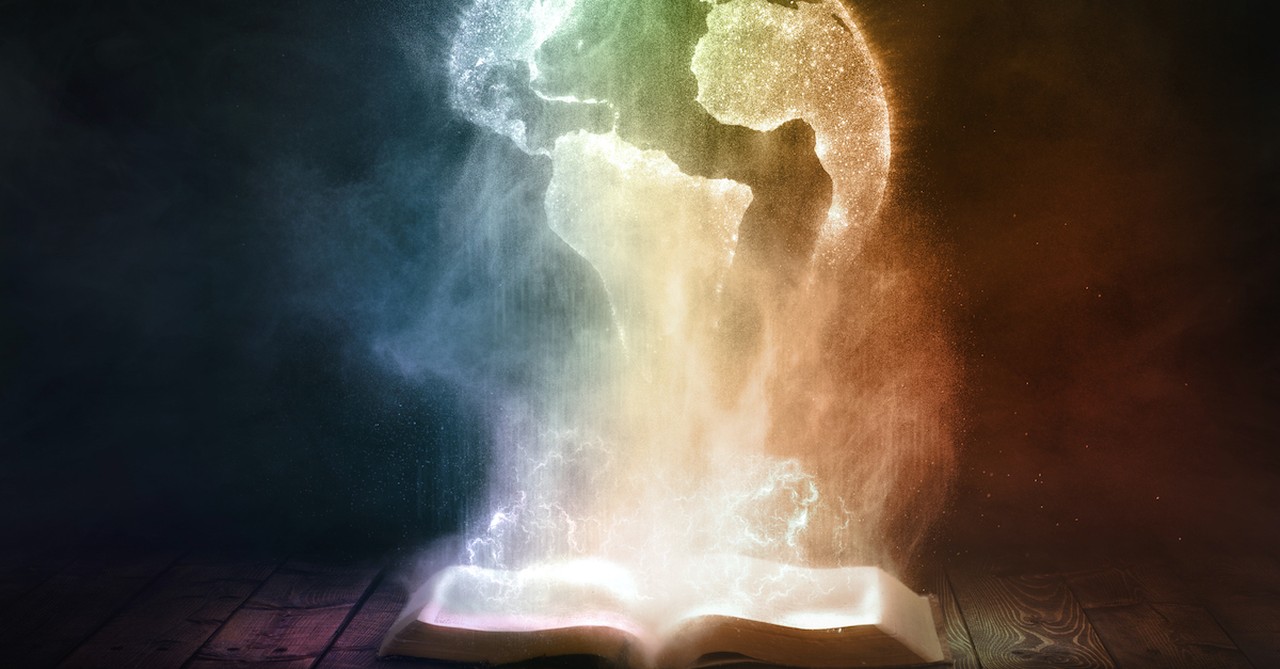7 Reasons to Teach Biblical Creation in Your Church

Jesus died for sinners.
That’s a pretty simple statement, isn’t it? Yet there is quite a bit of debate about what this actually means. Theologians debate the scope and the intent of the death of Christ. Sometimes the argument can get pretty heated. Folks on one side have been accused of arguing for cosmic child abuse. While others are accused of denying the faith altogether.
What’s my point?
Most pastors on a Sunday morning aren’t found debating these particular points in their sermons. Nor do they shy away from heralding that Christ died so that you can have life. We tend to proclaim that “everyone who calls on the name of the Lord will be saved,” we invite sinners to repent and receive Christ, and let some of those debates rest for another day.
Can you imagine if we didn’t? What if we shied away from talking about the death of Christ because some argue about certain aspects of it?
I say all of this because I think teaching on creation is similar. What do I mean by “biblical creation”? I really just mean “God created everything, and that means you.” It’s important that we not shy away from teaching this central truth. And that we don’t miss the simplicity of this by arguing about various points surrounding it. Here are seven reasons why this simple truth ought to be taught in your church.
Photo Credit: ©iStock/Getty Images Plus/HiddenCatch
1. It grounds the gospel in the bigger story.

1. It grounds the gospel in the bigger story.
SLIDE 1 OF 7
As we drove past the old ball field, I said to my son, “What a tragedy.” It was once a beautifully manicured field, with elegant grandstands—a great place to play summer ball. Now it was overgrown with weeds, and the bleachers looked like they were held together by the forty-year-old gum stuck underneath them. My son just said, “Okay.”
He didn’t get it because he didn’t see the ball park in its glory days. He only knew it by it’s fallen condition. Our world is similar. It still holds within it the fingerprint of God. There are still beautiful things. But we all know that things are broken and not like what they’re supposed to be.
The story of creation paints that picture for us. It tells us what things used to be like. Teaching biblical creation helps people see that salvation isn’t just about getting out of trouble—it’s about being restored to what we were always meant to be. When we skip past creation, we risk shrinking the gospel down to a rescue plan.
Photo Credit: ©GettyImages/pcess609
2. It paints a picture of where we’re going.

2. It paints a picture of where we’re going.
SLIDE 2 OF 7
Creation doesn’t just tell us where we came from; it also gives a glimpse of where we are headed. The Bible speaks of a “new creation.” The Bible starts in the garden and ends in a city with the garden at its center. Eternity isn’t an escape from the physical world, but a complete renewal of it.
If you want to know what things ought to be and what things will look like when it’s all redeemed through Jesus, look at creation. While we might not know specific details, we can take courage that it was all “very good.” Teaching this helps people live with anticipation, not resignation.
Photo Credit: ©GettyImages/Nastco
3. It shapes how we see the world.

3. It shapes how we see the world.
SLIDE 3 OF 7
We handle things differently based on what we believe they’re worth. If you see a diamond on the ground, you don’t kick it to the side. You stoop to pick it up, you protect it, and likely go to get it appraised. But if you see an old can on the ground, you might just kick it and toss it aside. Throw it in a ditch somewhere.
Now, some of you are cringing a little. Why would I advocate throwing a metal can in the ditch and not properly disposing of it or recycling it? Exactly. You say that because you value the earth. You believe it to be valuable. A biblical view of creation will come to a similar conclusion. The world that God has given us is beautiful. Understanding creation from a biblical perspective helps us view the world as God does.
Photo Credit: ©iStock/Getty Images Plus/TanawatPontchour
4. It helps build a robust theology of the body.

4. It helps build a robust theology of the body.
SLIDE 4 OF 7
Understanding creation from the perspective of the Bible also helps us develop a robust theology of the body. The story of creation shows intentionality and personal involvement in the creation of our bodies. Your body isn’t an afterthought. From the beginning, the human body was part of God’s good design. It still is. The incarnation and bodily resurrection of Jesus underscores this truth.
When we teach creation, we remind people that their bodies matter. We aren’t mistakes to manage or machines to master. We are fearfully and wonderfully made. Though this does dip into some controversial areas, understanding that we were created by God helps build a foundation for issues of gender as well as helps us think about aging, sickness, and disability.
Photo Credit: ©iStock/Getty Images Plus/Maria Korneeva
5. It provides a foundation for human dignity.

5. It provides a foundation for human dignity.
SLIDE 5 OF 7
If humans are just a product of time and chance, then dignity is nothing more than a social construct. That makes dignity something we agree to give to one another until we decide that we don’t have to anymore. But if we’re created by God, in His image, then dignity is built into who we are. It’s not something that is earned or something that can be revoked. The truth of being created by God grounds human worth in something deeper than performance, popularity, or productivity. It means that everyone matters—from the “least” to the “greatest” (whatever that may mean).
That truth has far-reaching implications. It shapes how we talk about justice, how we treat our neighbors, and even how we see ourselves. It pushes back against pride—we are only dust. But it also pushes back against pride—you were created by an all-wise God intentionally. People aren’t problems to fix or obstacles to avoid. We are all image-bearers, marred as that image may be.
Photo Credit: © Getty Images/Jantanee Rungpranomkorn
6. It helps people live with purpose in a confusing world.

6. It helps people live with purpose in a confusing world.
SLIDE 6 OF 7
People in our world are hungry for purpose, but they’re drowning in options. We tell people to be true to themselves, but have lost any firm foundation for knowing that. We essentially create ourselves. As if we’re a blank canvas. And then we wonder why people feel so lost. But creation gives people something to stand on. You were created for rest, rule, and relationship. You were created for a people, a purpose, and a place. God doesn’t make mistakes. That truth cuts through all the noise.
Teaching on creation helps people anchor their identity, dignity, and calling in something deeper than personality tests or cultural trends. It doesn’t magically remove any of the confusion of life but it reframes it. Rather than asking, “What do I want to be” we start to ask “What was I made for?” We discover meaning not from within but from looking outward to God’s calling on our life. It’s a much firmer foundation.
Photo Credit: ©GettyImages/demaerre
7. It reinforces the power of God’s Word.

7. It reinforces the power of God’s Word.
SLIDE 7 OF 7
Creation shows us that when God speaks, things happen. He didn’t build the world with His hands; God spoke it into being. This is a picture of the raw creative power of God’s Word. God’s Word isn’t passive or abstract—it is active. Even today, God’s Word is able to make a heart of stone turn into a heart of flesh. It can open the eyes to the glory of Christ. It is by God’s Word that new birth happens.
he same Word that spoke galaxies into motion is the Word that speaks to us through Scripture. When we open the Bible, we’re not just reading ideas. We are encountering the One who created the very breath we are breathing. If God’s Word can call something out of nothing, then it can certainly bring hope out of despair, clarity out of confusion, and life out of death.
Conclusion
It may seem like there are plenty of reasons to not teach on creation—or even to assume it. It’s controversial. And it can raise questions we don’t always know how to answer. But the core point is powerful. The opening pages of Scripture give us something our people desperately need. It gives us clarity about God and clarity about who we are in this world.
That doesn’t mean you have to settle every debate, or even make the disputed points your greatest focus. There is a simple truth in all of this that is powerful and vitally important: God created us. That’ll preach. That truth alone carries beauty, weight, and power. It can provide an anchor in a world full of confusion and noise.
God made you.
You can feast on that beautiful truth for quite some time.
Photo Credit: ©GettyImages/kevron2001
Originally published July 16, 2025.






